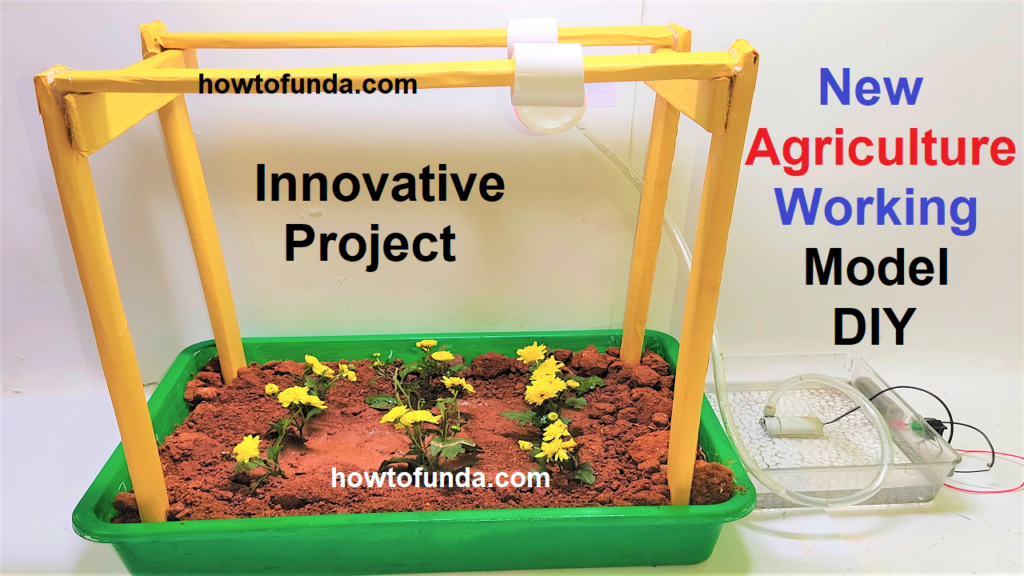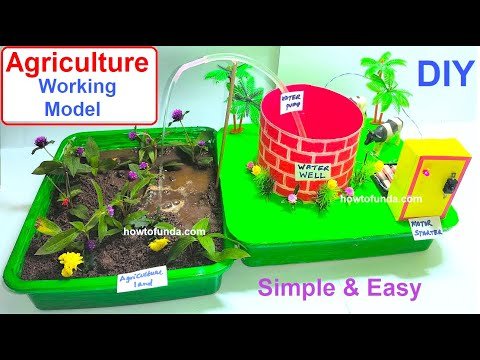Here are the list of 50 science fair project ideas for school science exhibitions that focus on addressing real-world challenges and making a positive impact on the world:

Environmental Science:
Water Purification Methods: Compare different water purification techniques to provide clean drinking water in underserved areas.
Air Quality Monitoring: Build an air quality sensor network to track pollution levels and raise awareness.
Plastic Biodegradation: Investigate the biodegradation of different types of plastics and their impact on the environment.
Urban Heat Islands: Study urban heat islands and propose strategies to reduce their effects on local communities.
Renewable Energy Sources: Analyze and compare the efficiency of various renewable energy sources for sustainable power generation.
Soil Remediation Techniques: Explore methods to clean contaminated soil and restore its health for agricultural use.
Bee Population Decline: Investigate the causes of bee population decline and propose solutions to protect pollinators.
Recycling Innovations: Develop a new recycling method for hard-to-recycle materials like electronics or mixed plastics.
Sustainable Agriculture Practices: Study and promote sustainable farming techniques that reduce environmental impact.
Ocean Acidification Effects: Investigate the impact of ocean acidification on marine life and propose mitigation strategies.
Health and Medicine:
Low-Cost Medical Devices: Create affordable medical devices to improve healthcare accessibility in resource-limited areas.
Nutrition Awareness: Analyze the nutritional value of common foods and educate peers on making healthy choices.
Accessible Healthcare Information: Develop tools or apps to provide healthcare information to underserved populations.
Hygiene Solutions: Design cost-effective hygiene solutions for areas with limited access to sanitation facilities.
Medicinal Plant Research: Investigate the potential of locally available plants for medicinal purposes
Community Health Education: Create educational campaigns to raise awareness about diseases, vaccinations, or healthy habits.
Stress Management Techniques: Study and promote stress reduction methods among students and peers.
Health Tracking Apps: Develop an app to track health indicators and encourage a healthy lifestyle.
Mental Health Support: Design resources or platforms to support mental health awareness and well-being.
Medical Waste Management: Explore efficient methods for handling medical waste to prevent environmental and health risks.
Technology and Innovation:
Assistive Technology: Invent devices to aid people with disabilities, improving their quality of life.
Digital Education Tools: Create interactive and accessible educational tools for remote or underserved communities.
Smart Traffic Management: Develop a smart traffic system to reduce congestion and improve urban transportation.
E-Waste Management: Propose innovative ways to manage electronic waste and encourage responsible disposal.
App for Social Change: Design an app to connect volunteers and resources with local community needs.
Low-Cost Housing Solutions: Engineer affordable housing designs using sustainable materials and energy sources.
Natural Disaster Early Warning: Develop a system to provide early warnings for natural disasters and evacuation plans.
Virtual Reality for Education: Explore the use of virtual reality in education to enhance learning experiences.
Clean Energy Storage: Create efficient and affordable energy storage solutions for renewable energy sources.
Digital Farming Tools: Develop digital tools to assist small-scale farmers in optimizing crop yields and resources.
Social and Community Solutions:
Homeless Shelter Innovations: Design improved shelters or resources for homeless populations.
Community Gardens: Establish community gardens to promote local food production and neighborhood bonding.
Literacy and Education Programs: Create engaging educational programs for underserved communities.
Crisis Response Plans: Develop emergency response plans for schools or communities.
Youth Mentorship Programs: Implement mentorship programs to empower and guide younger students.
Local Cultural Preservation: Document and preserve local cultural traditions, languages, and practices.
Anti-Bullying Initiatives: Launch campaigns to promote a culture of respect and prevent bullying in schools.
Inclusive Playground Design: Design playgrounds that are accessible and inclusive for children with disabilities.
Social Entrepreneurship Projects: Start a project that addresses a social or environmental challenge through a sustainable business model.
Community Clean-Up Events: Organize and participate in community clean-up events to improve local environments.
Climate and Conservation:
Carbon Footprint Reduction: Develop strategies to reduce personal or community carbon footprints.
Wildlife Conservation: Create awareness campaigns to protect local endangered species and their habitats.
Reforestation Initiatives: Organize tree planting projects to combat deforestation and enhance local ecosystems.
Green Transportation Campaigns: Promote biking, walking, or public transport to reduce carbon emissions.
Climate Change Art Exhibition: Organize an art exhibit to raise awareness about climate change and its impacts.
Green Building Design: Design energy-efficient and eco-friendly building models for sustainable urban planning.
Plastic-Free Initiatives: Launch campaigns to reduce single-use plastics and encourage reusable alternatives.
Climate Data Analysis: Analyze climate data to predict local impacts and adapt strategies to changing conditions.
Ocean Conservation: Raise awareness about marine pollution and advocate for ocean conservation efforts.
Renewable Energy Education: Educate peers about the benefits and potential of renewable energy sources.

